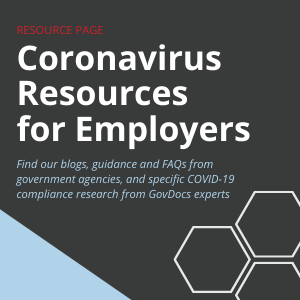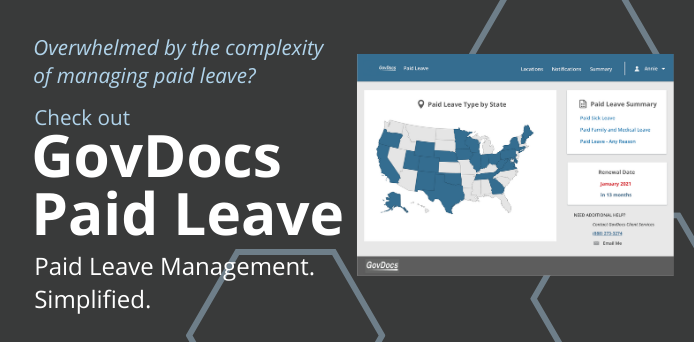EMPLOYMENT LAW NEWS
Maryland Salary History Ban Goes Into Effect Soon
By Kris Janisch
Published Sept. 10, 2020

The salary ban amendments to Maryland’s Equal Pay for Equal Work law go into effect Oct. 1, 2020.
Maryland has joined the growing number of states with a salary history ban. Its law goes into effect Oct. 1.
At a high level, Maryland’s salary history ban covers two areas that impact employers when making hires:
- Prohibiting previous pay history in the decision-making process
- Requiring employers to provide the job’s wage range upon request
Passed this last spring without the governor’s signature, the measure amends Maryland’s Equal Pay for Equal Work law. It also includes a component that applies gender-based pay discrimination to job applicants as well as employees.
Nearly 20 states and more than 20 smaller jurisdictions have salary history ban laws on the books.
Salary History Ban in Maryland
With the salary history ban in Maryland to take effect soon, employers should ensure their hiring practices and procedures align with the new law.
Salary Histories
The new law places additional restrictions on employers during the hiring process. Starting Oct. 1, employers may not:
- Use an individual’s pay history when screening applicants for employment
- Use wage history to determine a new hire’s pay
- Ask applicants about salary history
While employers can use voluntarily supplied salary history when making decisions, doing so must align with fair gender pay laws.
Wage Ranges
The second portion of the salary history law is more straightforward.
When requested by an applicant, employers must provide the wage range for the position. However, the language in the legislation does not define “wage range.”
Lastly, employers who violate the law can incur civil penalties depending on the situation, up to $600 for each application in which the law was breached.
Employment Law in Maryland
In recent years, Maryland lawmakers have been busy crafting and enacting new employment laws.
The state plans to increase its minimum wage to $15 by 2023. It increased to $11 an hour earlier in 2020.
Meanwhile, Maryland has also passed a hair discrimination law, as well as “Ban the Box” legislation, along with workplace harassment laws and civil penalties for violations of its equal pay law.
Employers with locations in Maryland may want to brush up on the state’s new employment laws.
Salary History Bans Nationwide
Salary history bans have gained momentum in recent years, especially as they tie to the #MeToo Movement.
These laws connected to a growing movement for employment law nationwide, reflected in updated worker protections, paid leave, minimum wage and more.
Levels of compliance concerns for employers will likely continue to expand in the coming years, especially as the COVID-19 pandemic has amplified the need for new employment laws.
This Employment Law News blog is intended for market awareness only, it is not to be used for legal advice or counsel.
Keep Informed
with GovDocs Labor Law News

What is GovDocs?
GovDocs simplifies employment law compliance for large, multi-jurisdiction employers in the U.S. and Canada. The GovDocs software platform integrates three solutions in one convenient place to help you master the employment laws impacting your business. Whether you manage a postings, minimum wage or paid leave program, our products cut through research time, provide proactive insights into the everchanging landscape of employment laws and reduce the risk of noncompliance. The company is headquartered in St. Paul, Minn.
Have fewer than 30 locations?
The GovDocs Poster Store simplifies posting compliance for employers with less than 30 locations across all industries, offering a variety of posting products to meet your labor law compliance needs.



